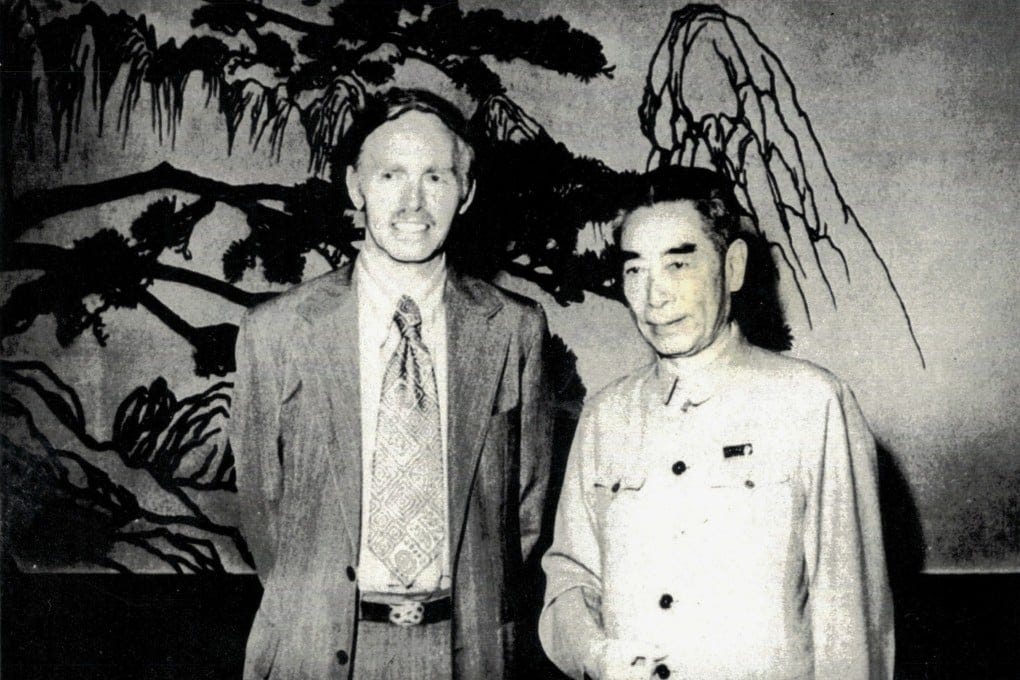In Memory of Jerome A. Cohen
PKU Law Professor Zhang Qianfan's tribute
Jerome A. Cohen, a widely respected American legal scholar on China, recently passed away at 95.
The following article, written by Zhang Qianfan, Professor at Peking University Law School, was first published in Chinese on September 25, 2025, at FTChinese.
Both FTChinese and Zhang have agreed to the translation.
I’ve come across words paying tribute to him in personal social media posts by Chinese legal scholars. A Chinese-language essay by Cohen, describing his personal involvement in China’s legal circles at the beginning of China's reform and opening up, which was also apparently first published in FTChinese in early 2017, is also circulating.

中国法治的“不老松”——追忆孔杰荣教授
The Evergreen Pine of the Rule of Law in China — In Memory of Professor Jerome A. Cohen
As a towering figure in the study of Chinese law, Professor Jerome A. Cohen (Jerry) has always stood, in my heart, as an “evergreen pine”—resolute and enduring in his lifelong dedication to human rights and the rule of law in China.
It was with deep sorrow that I recently learned Jerry passed away just two days ago, at the venerable age of 95. In recent years, my own exchanges with colleagues in the American legal community had become less frequent, and I regret that news of his departure reached me belatedly.
The reflections below were originally written in 2020, on the occasion of Jerry’s 90th birthday, when the organizers invited me to share a few words. I now offer them again, as a remembrance of a most respected elder, whose presence, integrity, and example left an indelible mark on so many of us.
I first met Jerry nearly two decades ago, when I was still teaching at the Law School of Nanjing University. Dean Fan Jian had arranged a dinner with him at Fuzimiao, if memory serves. A wayward driver caused me to arrive half an hour late. I can still recall Jerry’s first words to me: “Well, the boss finally shows up!” Knowing he had reason to be displeased, I raised my glass to him again and again. Two decades later, my own hair has turned white, yet Jerry scarcely seemed to change—an unyielding pine indeed.
Jerry’s vitality, I believe, owed much to his lighthearted wit and humor—something everyone who knew him experienced firsthand. But it also came from his candor. Whenever he spoke in China, his words were sharp, incisive, and unreserved—though his humor softened the edge of his critiques, particularly on issues such as criminal justice. Unlike Chinese scholars, he did not face the same constraints, though such concerns are of course understandable. His frankness reminded me of the late Professor Guo Daohui, one of China’s “Three Elders of the Rule of Law” (alongside Professors Jiang Ping and Li Buyun). Guo once said his secret to longevity was simple: always speak the truth. Longevity, it seems, knows no borders; honesty is its common thread.
Jerry’s warmth, generosity, and accessibility endeared him to every Chinese legal scholar and student who crossed his path. Many regarded him as a true “old friend of the Chinese people.” In fact, I have long thought that China’s “Three Elders of the Rule of Law” should really have been four—with Jerry included. In recent years, as the environment for law and rights in China has grown increasingly challenging, Jerry’s steadfast voice and unwavering support for those in need became all the more precious. Each time a human rights case arose in China, he responded without hesitation, standing with courage and conviction.
In the autumn of 2016, I brought a group of American constitutional enthusiasts to visit Jerry at NYU’s U.S.-Asia Law Institute. He graciously convened a special seminar for us—more a dialogue on the rule of law than a lecture. Everyone present was struck by his brilliance, his wit, and his gentlemanly grace. Later, as we shared a taxi ride, he recounted how, quite by accident, he had embarked on the path of studying Chinese law—a story well known to many. As we parted, I held his hand and said: for him, it may have been a “beautiful accident,” but for us, it was a “fortunate accident.” That such an extraordinary man should devote decades of his life to advocating tirelessly for the rule of law in China was indeed China’s great fortune.
Nearly a decade has passed since then, and much has changed in U.S.-China relations. Yet Jerry’s irreplaceable place in the field of Chinese law remains undiminished. I was heartened to hear that Columbia University Press recently published his autobiography. Because his life was so full, some passages had to be cut, but I hope a complete Chinese translation will soon be available. Jerry’s life was not only a rich chapter in the history of U.S.-China relations, but also a weighty and enduring chapter in the history of China’s struggle for the rule of law.
May Professor Jerome A. Cohen rest in eternal peace. His legacy will live on, evergreen.
Get Cohen’s book Eastward, Westward: A Life in Law



I met him a couple of times when I was at Paul, Weiss. A giant.
Was lucky enough to see him speak a few times back in grad school in NYC. Always seemed like he just had so much insight and knowledge to share. RIP